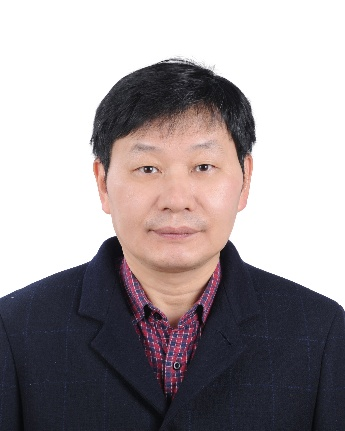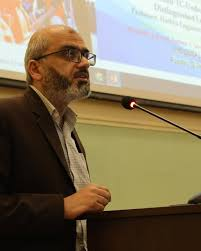Zuqing Zhu is a full professor at the School of Information Science and Technology, University of Science and Technology of China (USTC). Since January 2011, he has been leading the Intelligent Networking System and Future InterNet Infrastructure (INFINITE) Lab at USTC. Dr. Zhu is currently the Chair of the Technical Committee on Optical Networking (ONTC) of the IEEE Communications Society (ComSoc). He has been the Lead Series Editor of the Optical Communications and Networks Series in IEEE Communications Magazine and is currently on the editorial boards of IEEE Transactions on Network and Service Management, Optics Express, IEEE Transactions on Communications, Optical Switching and Networking (Elsevier), etc. Dr. Zhu is the Steering Committee Chair of the IEEE International Conference on High Performance Switching and Routing (HPSR), a Member-at-Large of the GLOBECOM/ICC Technical Content (GITC) Committee, and has been an IEEE ComSoc Distinguished Lecturer (2018–2021). He has published more than 360 papers in referred journals and conferences of IEEE and Optica. His h-index is 57 (from Google Scholar, 12/2023), his Google Scholar profile is here, and his ResearchGate profile can be found here. He has received the 2023 Distinguished Technical Achievement Award from the Communications Switching and Routing Technical Committee (CSR-TC) of ComSoc. Dr. Zhu is a Fellow of IEEE, a Fellow of the Asia-Pacific Artificial Intelligence Association (AAIA), and a Senior Member of Optica (formerly OSA).

Plenary Speaker
Professor Zuqing Zhu IEEE Fellow University of Science and Technology of China, China | Biography: Speech Title: Accelerating Collective Communications with Mutual Benefits of Optical Rackless DC and In-Network Computing Abstract: We propose a novel data center (DC) architecture to explore the mutual benefits of optical rackless data center (ORDC) and in-network computing for accelerating collective communications for emerging applications such as MapReduce clasters and Large Language Model training. Our experimental results indicate that the proposal reduces job completion time of collective communications by 27:4% to 43:3% over traditional benchmarks. |
Professor Wanyang Dai Chairman of Jiangsu Big Data-Blockchain and Smart Information Special Committee Nanjing University, China | Biography: Wanyang Dai is a Distinguished Professor in Nanjing University, Chief Scientist in Su Xia Control Technology. He is the President & CEO of (Blockchain & Quantum-Computing) SIR Forum, President of Jiangsu Probability & Statistical Society, Chairman of Jiangsu BigData-Blockchain and Smart Information Special Committee. He received his Ph.D. in mathematics and systems & industrial engineering from Georgia Institute of Technology in USA. He was an MTS and principal investigator in U.S. based AT&T Bell Labs (currently Nokia Bell Labs) with some project won “Technology Transfer” now called cloud system. He was the Chief Scientist in DepthsData Digital Economic Research Institute. He published numerous influential papers in big name journals including Journal of Applied Statistics, Mathematics, Probability in the Engineering and Informational Sciences, Quantum Information Processing, Operations Research, Operational Research, Queueing Systems, Computers & Mathematics with Applications, Communications in Mathematical Sciences, and Journal of Computational and Applied Mathematics, Mathematical and Computer Modelling of Dynamical Systems. He received various academic awards and has presented over 70 keynote/plenary speeches in IEEE/ACM, big data and cloud computing, artificial intelligence and robot, quantum computing and communication technology, computational and applied mathematics, biomedical engineering, mathematics & statistics, and other international conferences. He has been serving as IEEE/ACM conference chairs, editors-in-chief and editorial board members for various international journals ranging from artificial intelligence, machine learning, data science, wireless communication, pure mathematics & statistics to their applications. He is the Guest Editor of MDPI Mathematics Special Issue of Probability Statistics, a Guest Editor of (Springer Journal) Mobile Networks and Applications, an Associate Editor of (Elsevier Journal) Results in Applied Mathematics, and an Associate Editor of Quantum Research. Speech Title: Coordinating smart agents/robots with AGI and quantum transformer via spatial diffusion Abstract: To support online decision-making for coordinating smart agents/robots with AGI, we establish a generalized quantum transformer (Q-Transformer) with the capability of prediction and adaptive feedback control interaction via big model regression. Our Q-Transformer consists of quantum encode-decode two parts of convolutional neural networks, which corresponds to a forward-backward coupling spatial diffusion model whose drift parameter vectors can be mapped to different real-world attentions for AGI. This newly proposed Q-Transformer is integrated into our previously developed quantum cloud computing platform as its smart federated learning engine, which is supported by our recently designed and justified neutral atom quantum computer. The main purpose to develop such an integrated big model platform system is to conduct real-world high-dimensional spatial AI online decision-making. Specific applications such as multiple objective based robot routing, agent resource allocation, and dynamic pricing will be given. Related optimization and equilibrium policies will be trained with numerical simulations. |
Professor Suleman Mazhar Harbin Engineering University, China | Biography: Suleman Mazhar (Senior Member, IEEE) received the postdoctoral degree in information and communication engineering from Georgetown University, Washington, DC, USA, in 2015, and the Ph.D degree in information and communication engineering from Tokyo University, Tokyo, Japan, in 2010.,He loves teaching machine learning and data science and spends leisure time in software consultancy, field work, protecting endangered species in the rivers and endangered beings on the roads. He is currently a Professor with the College of Underwater Acoustic Engineering, Harbin Engineering University, Harbin, China. His research interests include acoustics and machine learning. Speech Title: Fine-Grained Road Condition Monitoring for Low-cost Road Maintenance and Route Quality Map Abstract: Traditional road maintenance methods are costly; requiring expensive equipment and manpower. Road quality categorization based on machine learning techniques, using real-time opportunistic data gathered from inexpensive open-source inertial systems, is a promising alternative. Existing open-source datasets for this problem are small and less representative of actual situation where data is imbalanced and skewed towards regular road surface instances. With the help of an inexpensive device and data collection platform developed by our team, we collected a large, heterogeneous dataset using multiple vehicle drove in Lahore (Pakistan), which is more realistic representative of the problem in real world settings. Using different conventional and deep learning classifiers, we addressed the classification problem of four kinds of Roadway Surface Disruptions (RSDs) namely, Cat eyes, Manholes, Potholes and Speed bumps. In addition, we explored deep learning based fine-grained event detection to accurately link these RSDs in spatio-temporal domain to the actual road network. We argue that these anomaly classification results can be used as a low-cost road maintenance solution by road repairing authorities and the road quality maps thus generated can provide the passengers and drivers with the information of most comfortable route for their journey. Hence, the proposed unified classification framework provides a solution to both of the target audiences by considering relevant anomalies. Work presented in this talk has been published at IEEE Transactions on Intelligent Transportation Systems, PerCom, and VTC. |
Prof. Thippa Reddy Gadekallu IEEE Senior Member Zhejiang A&F University, China | Biography: Thippa Reddy Gadekallu (Senior Member, IEEE) received the bachelor’s degree in computer science and engineering from Nagarjuna University, India, in 2003, the master’s degree in computer science and engineering from Anna University, Chennai, Tamil Nadu, India, in 2011, and the Ph.D. degree from Vellore Institute of Technology, Vellore, Tamil Nadu, in 2017. He is currently with the Division of Research and Development, Lovely Professional University, Phagwara, India, the Department of Electrical and Computer Engineering, Lebanese American University, Byblos, Lebanon, and the Center of Research Impact and Outcome, Chitkara University, Punjab, India. He has more than 14 years of experience in teaching. He has more than 150 international/national publications in reputed journals and conferences. His research interests include machine learning, the Internet of Things, deep neural networks, blockchain, and computer vision. He is an editor of several publishers, such as Springer, Hindawi, Plosone, Scientific Reports (Nature), and Wiley. He also acted as a guest editor in several reputed publishers, such as IEEE, Elsevier, Springer, Hindawi, and MDPI. He was recently recognized as one among the top 2% scientists in the world as per the survey conducted by Elsevier, in 2021. Speech Title: Industry 5.0: Enabling Technologies and Potential Applications Abstract: Industry 5.0 is regarded as the next industrial evolution, its objective is to leverage the creativity of human experts in collaboration with efficient, intelligent and accurate machines, in order to obtain resource-efficient and user-preferred manufacturing solutions compared to Industry 4.0. Numerous promising technologies and applications are expected to assist Industry 5.0 in order to increase production and deliver customized products in a spontaneous manner. Potential applications and supporting technologies of Industry 5.0 such as edge computing, digital twins, collaborative robots, Internet of every things, blockchain, and 6G and beyond networks, and several research challenges and open issues that should be further developed to realize Industry 5.0 will be discussed. |



